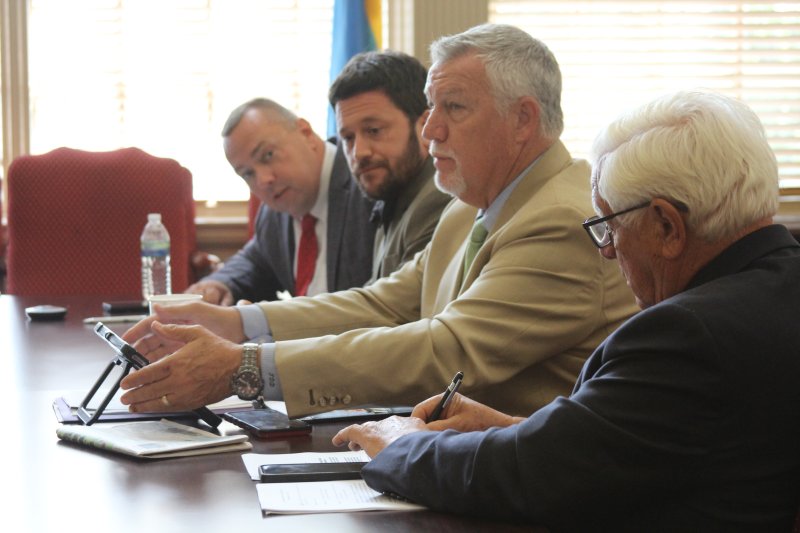Senate Republicans question rushed process
Senate Republicans are questioning why a special session to address property tax assessments was rushed when there had been ample time to address issues through the committee process.
“Abbreviated is a very mild word for us. There are constituents of ours, constituents from other areas of the state, who are concerned that this feels like a very rushed process,” said Senate Minority Whip Brian Pettyjohn, R-Georgetown. “We’re definitely not going regular order where we have committee meetings, and members of the public are invited and encouraged to attend to offer feedback. Stakeholders offer feedback in the public process. That hasn’t happened here. That is definitely a concern we have with part of the process that we’re going through today.”
Senate Minority Leader Gerald Hocker, R-Ocean View, said he had about two days to review the bills he was expected to vote on in the Aug. 12 special session.
With tax assessments for Sussex County rolling in now, he said he is concerned about special rates that are hitting communities such as mobile home parks.
“Those are the people that can’t afford it,” he said. “That’s why I’m saying we needed more time to put in this, studying the legislation, and more from the public.”
He said it makes no sense when the new assessments are adding costs that will make it difficult for mobile home park owners to keep rents low and the state is pushing for more affordable housing.
Pettyjohn reminded everyone that a lawsuit brought by special-interest groups in Wilmington is behind the property tax reassessments across the state, buoyed by a ruling in their favor by a judge.
The Delaware State Conference of the National Association for the Advancement of Colored People, representing Delawareans for Educational Opportunity, a group of about 20 parents and community leaders, sued Delaware in 2018 in Chancery Court, contending schools with more disadvantaged students receive less financial support from the state than schools with fewer disadvantaged students. Likewise, school districts with poorer tax bases receive less funding from the state than school districts with wealthier tax bases, the lawsuit stated.
In 2020, Vice Chancellor J. Travis Laster ruled in their favor, calling for reassessments, because an outdated system of property assessments was used to calculate a portion of funding for local schools, effectively hurting schools that need funding.
“It’s something that was forced on our counties. This isn’t something they did voluntarily. This isn’t something that they decided one day it was a good idea to do. This was done as a result of a lawsuit, the result of a decision by Vice Chancellor Laster that was forced upon all three counties and the million-plus Delaware residents,” Pettyjohn said.
Sen. Eric Buckson, R-Magnolia, said he was a Levy Court commissioner in Kent County when the ruling was handed down, and county officials realized they had no choice but to reassess properties.
“In 2018, we were made clear that this was going down. There was nothing rushed about it,” he said. “The greatest fear that we had at that time was that the judge meant what he said, which was ‘You shall do it or I shall do it for you.”
Buckson said county officials realized appealing the court decision was futile, so they did not pursue it.
Issues with the assessment process were brought up a year ago after Kent County went through its process, causing senators to question why the rush now that issues have arisen in New Castle County.
“No one cared when it was chicken houses, but now somehow because it’s manufacturing, it’s an emergency. I have news for you; chicken houses in Kent County and Sussex County matter,” Buckson said, referring to the tax increases on farms recorded a year ago in Kent County.
Melissa Steele is a staff writer covering the state Legislature, government and police. Her newspaper career spans more than 30 years and includes working for the Delaware State News, Burlington County Times, The News Journal, Dover Post and Milford Beacon before coming to the Cape Gazette in 2012. Her work has received numerous awards, most notably a Pulitzer Prize-adjudicated investigative piece, and a runner-up for the MDDC James S. Keat Freedom of Information Award.






















































